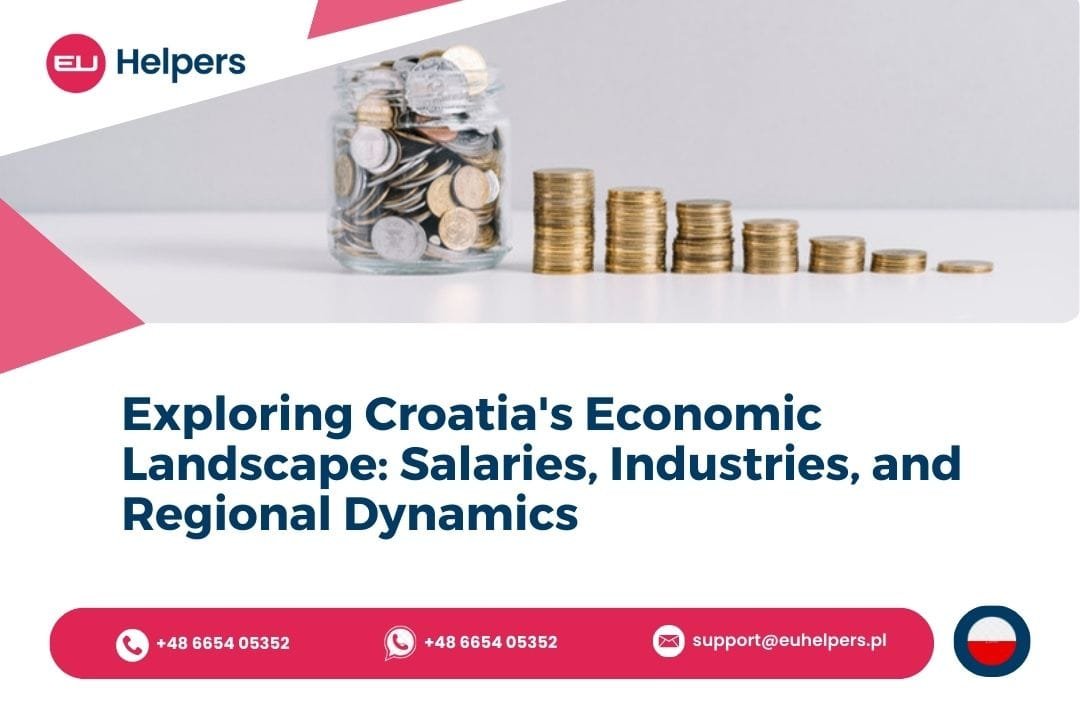As of 2024, the average gross monthly salary in Croatia is around HRK 12,265 (approximately €1,630). This figure highlights Croatia's dedication to equitable pay across different industries and regions, indicating economic stability and resilience. However, to fully grasp salary patterns, it's essential to delve into regional variations, industry-specific information, and minimum wage policies.
Regional variation & Cost of Living:
Diverse opportunities and lifestyles are available across Croatia due to regional variations in salaries and cost of living:
- Zagreb and Central Croatia: The capital city and its surrounding metropolitan area typically boast the highest average salaries in Croatia, ranging from HRK 8,500 to HRK 9,500 per month. Zagreb's status as an economic, political, and cultural hub, along with its diverse industries, contributes to its economic prosperity. However, residents should consider the city's higher cost of living, especially regarding housing and utilities.
- Coastal regions (Dalmatia, Istria): Dalmatia and Istria offer average salaries ranging from HRK 7,000 to HRK 8,000 per month. These areas are known for their stunning landscapes, tourism industry, and Mediterranean lifestyle. While the cost of living is slightly lower compared to Zagreb, it remains relatively high due to seasonal fluctuations in tourism and increased demand for coastal properties.
- Eastern Croatia (Slavonia, Baranja): Eastern Croatia provides average salaries ranging from HRK 6,000 to HRK 7,000 per month. Cities like Osijek and Vukovar serve as notable economic centers, focusing on agriculture, manufacturing, and food processing. The cost of living in this region is generally more affordable compared to Zagreb and the coastal areas, making it an attractive option for those seeking a balanced lifestyle.
- Rural areas throughout Croatia generally feature lower average salaries, typically ranging from HRK 5,000 to HRK 6,000 per month. However, the cost of living in these regions is notably lower compared to urban centers, providing residents with a more affordable lifestyle and a stronger connection to nature.
Minimum wages:
Regarding the minimum wage, as of 2024, Croatia maintains a minimum wage of HRK 6,329.46 (equivalent to 840€) per month. This demonstrates the government's dedication to guaranteeing fair compensation for all workers and contributes to upholding a decent standard of living nationwide.
Salaries in Various Industries:
Croatia's economy is characterized by a diverse range of sectors and industries, each contributing to overall economic growth:
1. Tourism and hospitality: The tourism industry is a significant economic driver, particularly in coastal regions and historic cities. Professionals in tourism and hospitality typically earn average salaries ranging from HRK 6,000 to HRK 8,000 per month, varying based on roles and locations.
2. Manufacturing: Croatia's manufacturing sector includes automotive, machinery, and textiles industries. Average salaries in manufacturing depend on specific industries and skill levels, typically ranging from HRK 5,000 to HRK 7,000 per month.
3. Information technology (IT): Urban centers like Zagreb are emerging as IT hubs. IT professionals, including software developers and specialists, can expect average salaries ranging from HRK 7,000 to HRK 9,000 per month, with higher salaries in specialized roles and industries.
4. Agriculture and agribusiness: Eastern Croatia's fertile plains are renowned for agriculture. Professionals in agriculture and agribusiness generally earn average salaries ranging from HRK 5,000 to HRK 7,000 per month, depending on roles and expertise levels.

